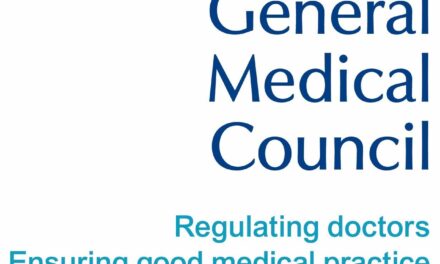Rahim v General Medical Council [2022] EWHC 137 (Admin)
A doctor who was erased from the Medical Register, with immediate effect, has lost her appeal against the sanction.
Background
This case relates to allegations which were found to be proven of dishonest alterations by a general practitioner, Dr Rahim, of her medical notes without any indication that the notes had been altered. Following a hearing lasting ten days, the Medical Practitioner’s Tribunal (“the Tribunal”) found the majority of the charges alleged against Dr Rahim proved. As the conduct included findings of dishonesty, a subsequent determination of present impairment was inevitable. Finally, the Tribunal determined that despite her glowing testimonials and good character, the public interest required that Dr Rahim should be erased from the medical register with immediate effect.
In short, the GMC alleged that on 2 January 2018 and 16 January 2018, Dr Rahim had consultations with Patient A. There was a conflict of evidence as to whether Patient A had presented with shortness of breath. The notes of Dr Rahim at the time were to the effect that Patient A had shortness of breath and there was no reference to a chest X-ray. Subsequently, under a different doctor, there was a chest X-ray and a diagnosis of lung cancer. After Dr Rahim heard of the diagnosis, she revisited her notes and on 7 August 2018 she amended the notes to show that there was no shortness of breath in the entry for 2 January 2018 and that if not better, there would be a chest X-ray in the entry for 16 January 2018. There was nothing in the amended notes to indicate that the notes had been amended. Following a complaint made in December 2018, Dr Rahim responded with a copy of the amended notes giving an account as per the amended notes without referring to the fact that the notes had been amended.
Grounds of appeal
Dr Rahim sought to appeal the determination on several grounds:
- The charges were mutually inconsistent and unclear and giving rise to injustice;
- Wrong refusal of GMC to disclose material capable of undermining reliability or credibility of Patient A;
- Wrong failure of the Tribunal to order disclosure of the same;
- Wrong prohibition of the Tribunal of cross examination of the expert Dr Williams in respect of Patient A’s medical notes for 2 March 2018;
- Wrong approach of Tribunal to factual determination by determining allegations 5 – 7 before the clinical allegations; and
- Wrong assessment of the facts by the Tribunal.
The primary case was the wrong diagnosis and the dishonesty to cover up the wrong diagnosis. Following service of Dr Rahim’s witness statement, the GMC amended the charges and further alleged that if Dr Rahim’s case was or might be true, then she failed to make adequate record of the consultations including her working diagnosis and clinical management. Dr Rahim accepted some of these charges and the GMC was informed that she would accept certain allegations.
After the Tribunal announced that the matters admitted were proved, Counsel then appearing for the GMC, asked the Tribunal not to follow the Rules and to find the matters not proved at this stage, as the admissions were contrary to the primary GMC case. It was submitted on behalf of Dr Rahim that it was possible to have a primary and a secondary case provided that they were not mutually exclusive, but in this case, they were mutually exclusive. Following the opening submissions, the Chair stated that she was going to advise the Tribunal that the facts remained in dispute. Mr McCartney for Dr Rahim refused to withdraw the admissions. The Tribunal found inter alia that the “admissions were withdrawn and found not proved.” It was Dr Rahim’s case before the Tribunal and this Court on appeal that this was not correct. The admissions were not withdrawn.
Mr Justice Freedman commented in the judgement that:
“There is no authority which prevents preferring lesser charges based on the admissions of a doctor even if they contradicted the primary case of the GMC.”
Turning down the first ground of appeal, Freedman J said:
“There was no breach of natural justice because it was obvious from the start that the extra charges were lesser charges if the primary case failed.”
And
“Assume that the primary charges had not been proved because it was evenly balanced, namely the evidence pointed neither to the fact that they had been committed nor to the fact that they had not been committed. In those circumstances, it would in theory be possible to say that the lesser charges would not be proved because the veracity of admissions was not proved on the balance of probabilities. That theoretical possibility did not arise in the circumstances of this case because the primary case against Dr Rahim was proved on the balance of probabilities.”
Freedman J went on to dismiss all the other grounds of the appeal, saying:
“he decision of the Tribunal was not wrong nor was there a serious procedural or other irregularity or any injustice thereby. It follows that the appeal is dismissed.”
Follow Us






Recent Comments